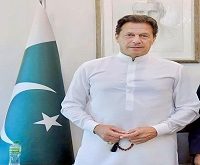Understanding the Agreement on Internal Trade with Respect to Imran Khan
In this article, the Agreement on Internal Trade (AIT) and its implications concerning Imran Khan’s policies and governance in Pakistan.
Introduction to the Agreement on Internal Trade (AIT)
The Agreement on Internal Trade (AIT) is a pivotal accord in Canadian economic governance, aiming to facilitate trade and commerce among provinces and territories. Enacted in 1994, the AIT seeks to eliminate barriers and promote economic integration within Canada.
The Impact of the AIT on Imran Khan’s Policies
Economic Liberalization Efforts
Imran Khan’s administration in Pakistan has shown keen interest in economic liberalization, seeking to boost trade and investment. Drawing insights from the AIT, Khan’s policies aim to reduce bureaucratic hurdles and foster a conducive environment for domestic and international trade.
Regulatory Harmonization
Aligned with the principles of the AIT, Imran Khan’s government has emphasized regulatory harmonization to streamline business operations. By aligning regulations across provinces, Pakistan aims to enhance market efficiency and attract investment.
Trade Facilitation Measures
Inspired by the AIT’s emphasis on trade facilitation, Imran Khan’s government has implemented various measures to simplify customs procedures and reduce trade barriers. These efforts aim to bolster Pakistan’s competitiveness in the global market.
Challenges and Opportunities
Compliance Challenges
Efforts to align with the AIT’s principles notwithstanding, Pakistan faces challenges in implementing comprehensive reforms due to institutional barriers and political resistance. Overcoming these hurdles requires sustain commitment and cooperation among stakeholders.
Economic Integration Opportunities
Embracing the spirit of the AIT presents significant opportunities for Pakistan to enhance economic integration and foster regional cooperation. By aligning policies with international standards, Pakistan can attract foreign investment and bolster economic growth.
Regulatory Reforms
Imran Khan’s government has initiat regulatory reforms to align with AIT standards, aiming to simplify procedures for businesses and promote cross-border trade. These reforms include:
Streamlining licensing processes:
Simplifying licensing procedures for businesses to reduce administrative burden and encourage entrepreneurship.
Harmonizing Standards: Aligning product standards and regulations across provinces to facilitate interstate trade and ensure uniform quality.
Investment Promotion
Recognizing the importance of foreign investment for economic growth, Pakistan, under Imran Khan’s leadership, has implement strategies to attract foreign investors. These initiatives include:
Investor-Friendly Policies:
Introducing policies to ease restrictions on foreign ownership and provide incentives for investment in key sectors.
Infrastructure Development:
Investing in infrastructure projects to enhance connectivity and create a conducive environment for business operations.
Enhancing Trade Infrastructure
Improving trade infrastructure is crucial for facilitating the movement of goods and reducing transaction costs. Imran Khan’s government has prioritiz infrastructure development, including:
Modernizing Ports:
Upgrading port facilities to accommodate larger vessels and improve efficiency in cargo handling.
Expanding Transport Networks: investing in road and rail networks to enhance connectivity and facilitate the movement of goods within the country.
Addressing Challenges

Administrative Capacity
Implementing AIT principles requires strong administrative capacity to enforce regulations effectively. Pakistan faces challenges in this regard, including:
Capacity Building: Investing in training and capacity building for government officials to enhance regulatory enforcement and compliance.
Institutional Reforms: Undertaking structural reforms to streamline bureaucratic processes and improve governance efficiency.
Political Will
Political will is crucial for driving reforms and overcoming resistance from vested interests. Imran Khan’s government must demonstrate commitment to reform agenda through:
Public Awareness Campaigns: Engaging with stakeholders and raising public awareness about the benefits of AIT compliance.
Political Leadership: Championing reform initiatives and rallying support from political allies to overcome opposition.
Conclusion
Imran Khan’s government in Pakistan has embark on a journey to align with the principles of the Agreement on Internal Trade (AIT) to promote economic integration and facilitate trade. By implementing regulatory reforms, promoting investment, and addressing infrastructure challenges, Pakistan can unlock its economic potential and enhance its competitiveness in the global market.



